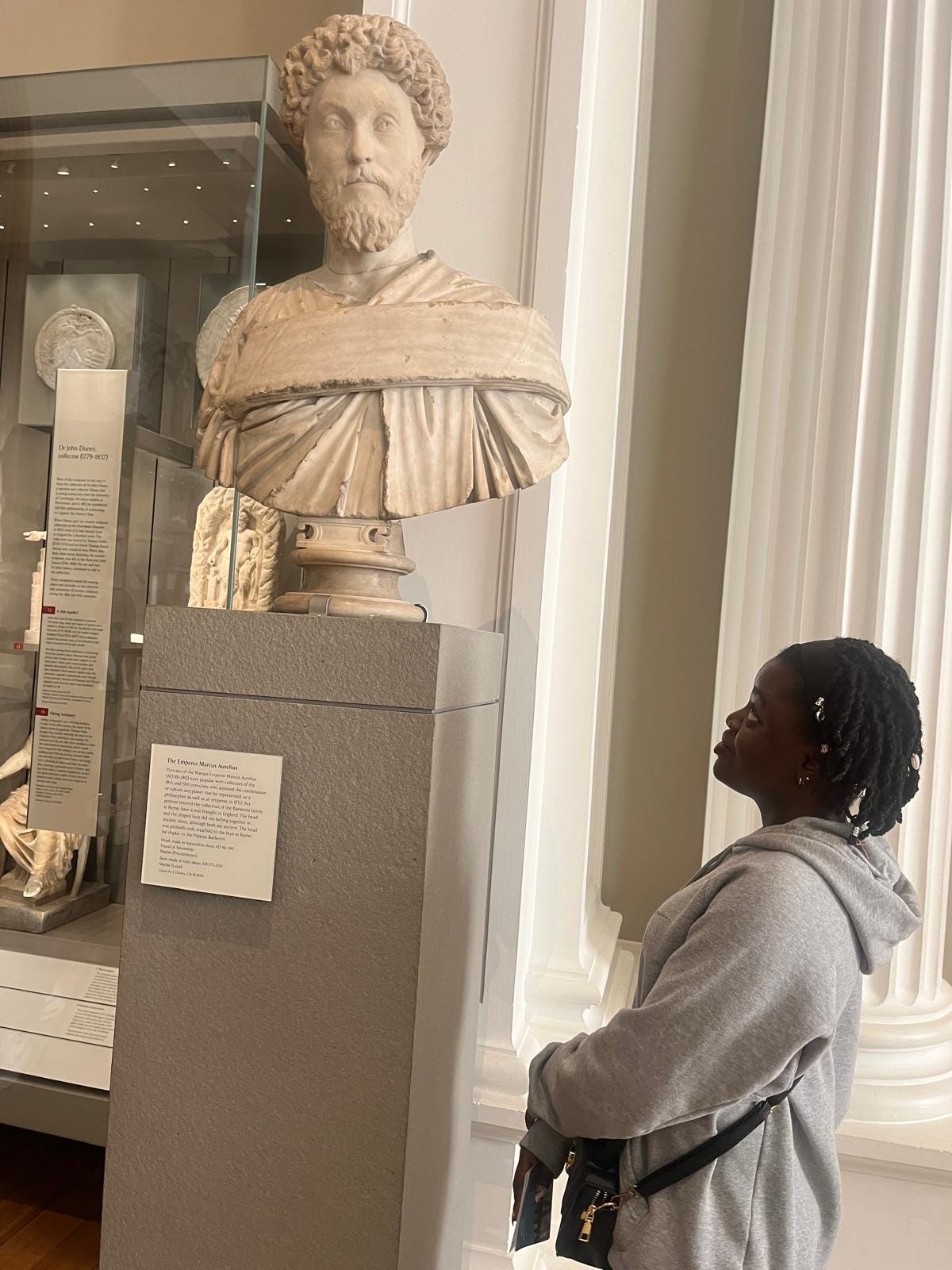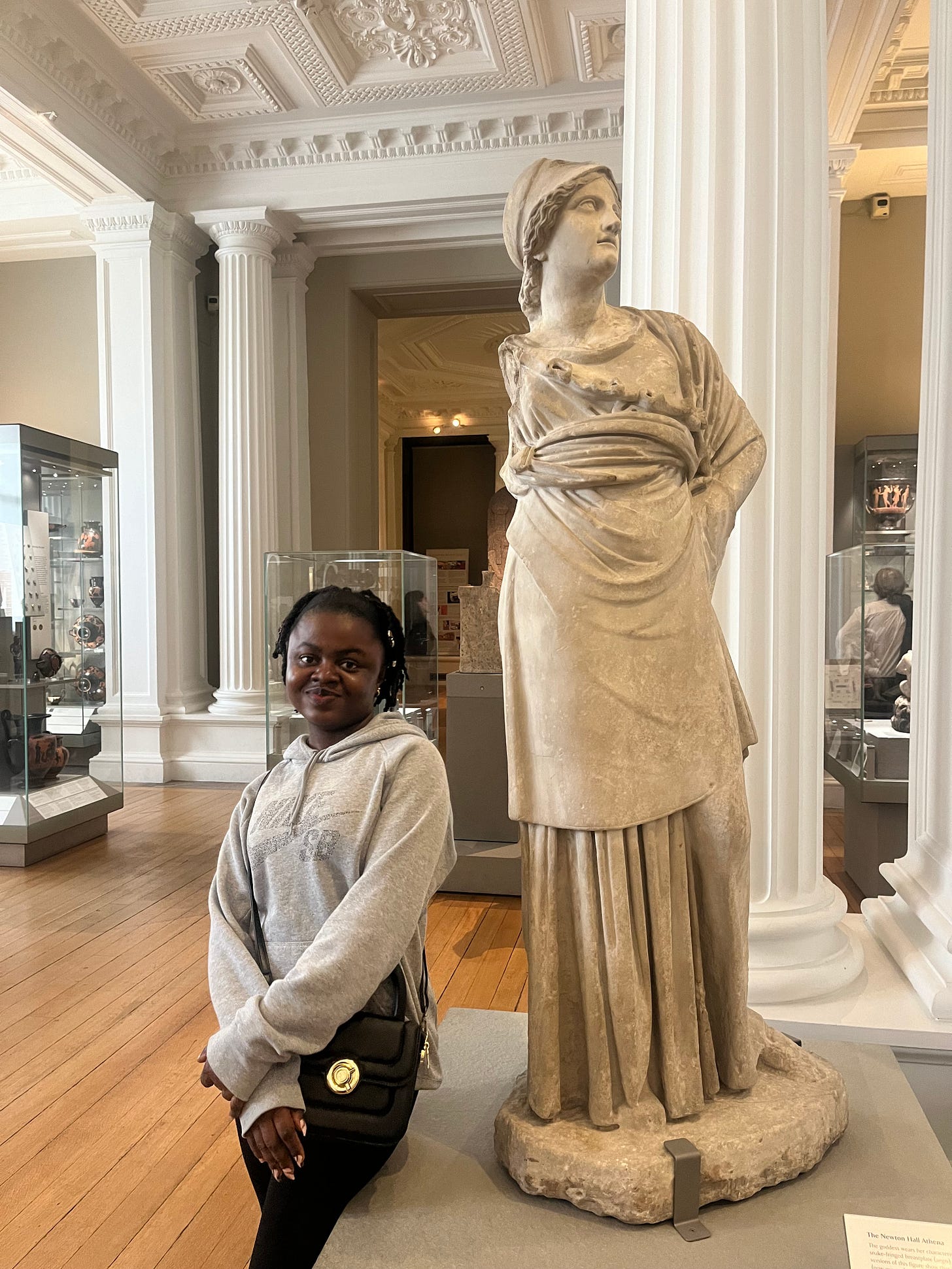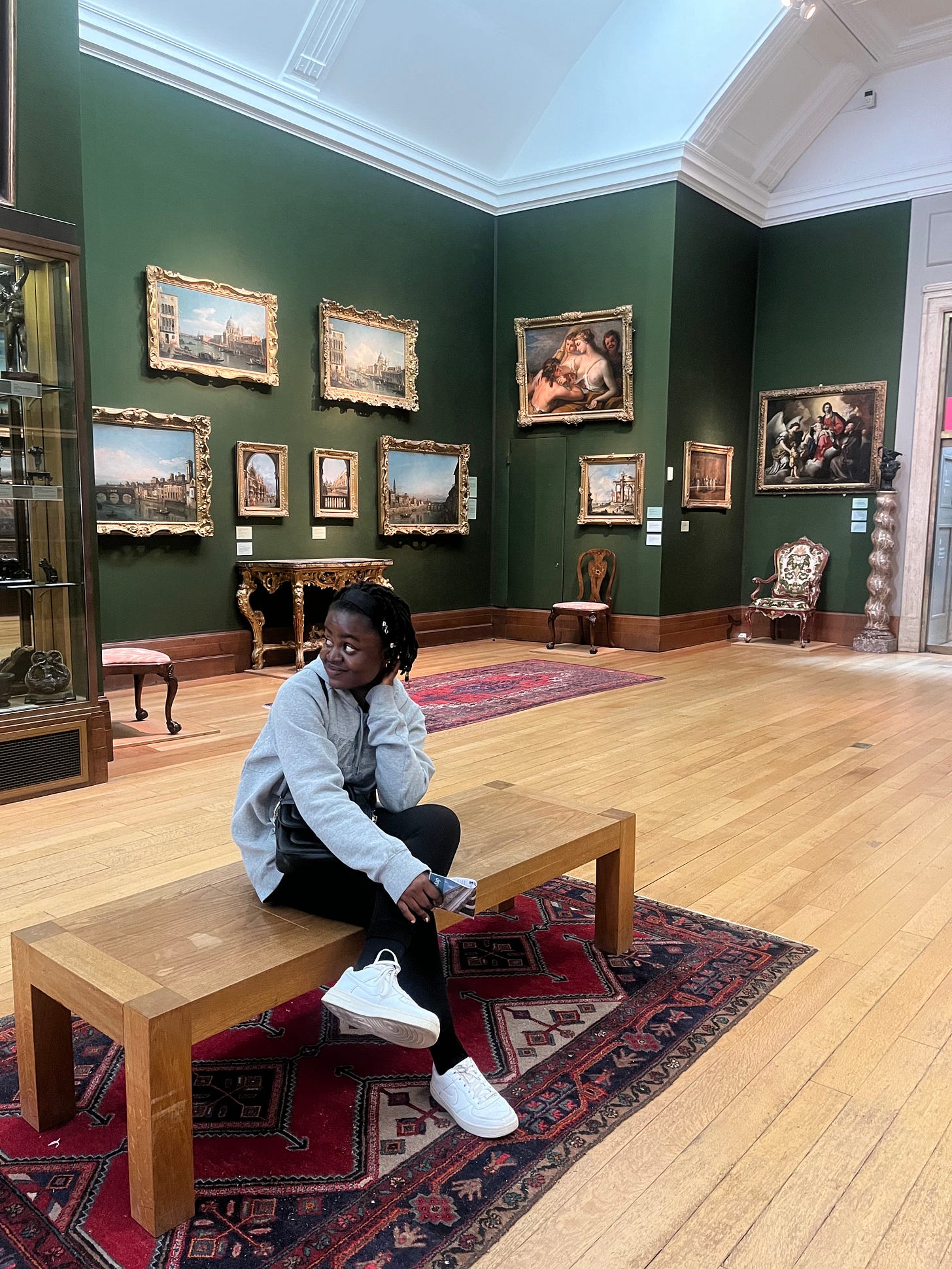I was at the Fitzwilliam museum one of the Sundays in the summer of 2024. While walking around and trying to take in all the pieces displayed with the inscriptions beneath them, I stared a little too much at Marcus’s Sculpture.
While still engrossed, a lady walked up to me and asked if I had read ‘Meditations’ by him, and I said so. She said I should, that she liked it and maybe i would also, so, I picked up the book September 24th to read and you will be amazed to know that I just completed the book tonight.
Anyway, I wondered what my interest in him was.
Meditations.
I thought it was a classic book, having read and completed Symposium, I thought I might just try another. But when I asked Google, I was told that the book Meditation ‘by Marcus Aurelius is primarily philosophy, specifically Stoic philosophy. It is also considered a form of self-help or personal journal as it was written as a series of personal reflections and exercises. Some also categorize it as a spiritual or meditative work due to its focus on introspection and finding inner peace’. Wikipedia will go on to say that ‘Meditations is a series of personal writings by Marcus Aurelius, Roman Emperor from 161–180 AD, recording his private notes to himself and ideas on Stoic philosophy.’
While i struggle to get into the book itself, i liked the historical account provided about Marcus and his family lineage before his journal entries.
I find myself reading some of the entries in delight while for the other part of it, I was skimming through and highlighting quotes and thoughts that resonates with me.
So, while I will not have an extensive say about what this book is and how I did not enjoy with it and struggled to complete it (because I had decided to see things to completion), I hope you find some of the quotes below interesting and maybe glean one or two pieces of wisdom from them.
It is, in other words, not objects and events but the interpretations we place on them that are the problem. Our duty is therefore to exercise stringent control over the faculty of perception, with the aim of protecting our mind from error.
Our duty to act justly does not mean that we must treat others as our equals; it means that we must treat them as they deserve. And their deserts are determined in part by their position in the hierarchy.
To read attentively—not to be satisfied with “just getting the gist of it.” And not to fall for every smooth talker.
To be free of passion and yet full
of love. To praise without bombast; to display expertise without pretension.
Not to be constantly correcting people, and in particular not to jump on
them whenever they make an error of usage or a grammatical mistake or
mispronounce something, but just answer their question or add another
example, or debate the issue itself (not their phrasing), or make some other
contribution to the discussion—and insert the right expression,
unobtrusively.
Not to be constantly telling people (or writing them) that I’m too busy, unless I really am. Similarly, not to be always ducking my responsibilities to the people around me because of “pressing business.”
Do external things distract you? Then make time for yourself to learn
something worthwhile; stop letting yourself be pulled in all directions. But
make sure you guard against the other kind of confusion. People who labor
all their lives but have no purpose to direct every thought and impulse
toward are wasting their time—even when hard at work.
Don’t waste the rest of your time here worrying about other people—
unless it affects the common good. It will keep you from doing anything
useful. You’ll be too preoccupied with what so-and-so is doing, and why,
and what they’re saying, and what they’re thinking, and what they’re up to,
and all the other things that throw you off and keep you from focusing on
your own mind.
You need to avoid certain things in your train of thought: everything
random, everything irrelevant. And certainly everything self-important or
malicious. You need to get used to winnowing your thoughts, so that if
someone says, “What are you thinking about?” you can respond at once
(and truthfully) that you are thinking this or thinking that. And it would be
obvious at once from your answer that your thoughts were straightforward
and considerate ones—the thoughts of an unselfish person, one
unconcerned with pleasure and with sensual indulgence generally, with
squabbling, with slander and envy, or anything else you’d be ashamed to be
caught thinking.
Don’t gussy up your thoughts.
If you do the job in a principled way, with diligence, energy and
patience, if you keep yourself free of distractions, and keep the spirit inside
you undamaged, as if you might have to give it back at any moment—
If you can embrace this without fear or expectation—can find fulfillment
in what you’re doing now, as Nature intended, and in superhuman truthfulness (every word, every utterance)—then your life will be happy.
No one can prevent that.
A key point to bear in mind: The value of attentiveness varies in proportion to its object. You’re better off not giving the small things more time than they deserve.
So remember this principle when something threatens to cause you pain:
the thing itself was no misfortune at all; to endure it and prevail is great
good fortune.
In a sense, people are our proper occupation. Our job is to do them good
and put up with them.
Not to assume it’s impossible because you find it hard. But to recognize that if it’s humanly possible, you can do it too.
Don’t be ashamed to need help. Like a soldier storming a wall, you havea mission to accomplish. And if you’ve been wounded and you need a comrade to pull you up? So what?
No matter what anyone says or does, my task is to be good. Like gold or
emerald or purple repeating to itself, “No matter what anyone says or does,
my task is to be emerald, my color undiminished.”
If you don’t have a consistent goal in life, you can’t live it in a
consistent way.” Unhelpful, unless you specify a goal.
And along with not getting angry at others, try not to pander either.
Both are forms of selfishness; both of them will do you harm. When
you start to lose your temper, remember: There’s nothing manly about rage. It’s courtesy and kindness that define a human being—and a
man. That’s who possesses strength and nerves and guts, not the angry
whiners. To react like that brings you closer to impassivity—and so to
strength. Pain is the opposite of strength, and so is anger. Both are
things we suffer from, and yield to.
False friendship is the worst. Avoid it at all costs. If you’re honest and
straightforward and mean well, it should show in your eyes. It should be
unmistakable.
If you’re still here, thank you!
While I thought I was reading another classic novel, sadly it wasn’t, but it was good to read a genre I’m not accustomed to and see it through. I definitely know i won’t be reading this book again but if you find any of the quotes useful and want to deep dive, please do! We can’t all like the same book.
Tashakoor Mikonam
Till the next book review episode.











I loved it, but I think I'd also skim through the pages of Meditations. Those quotes were really great though. The one that said you shouldn't tell people you're busy, when you really aren't, drew my attention. Thanks babe!
Series on life lessons 😉 Treat people how they deserve. I’m taking notes.